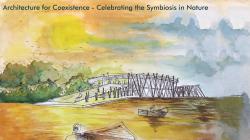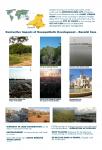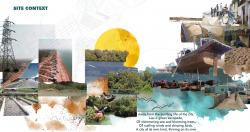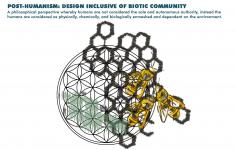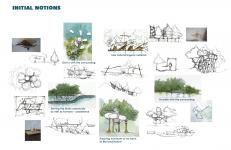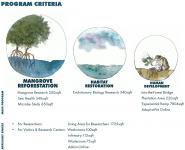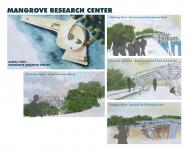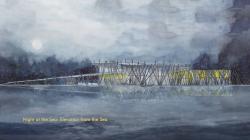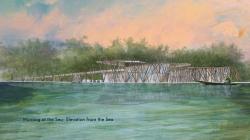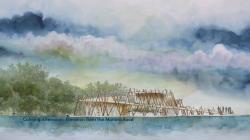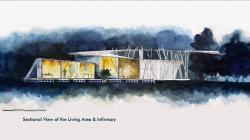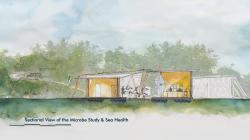Idea: The shimmering seascapes and the contagious laughs of excited children who just cannot have enough of the sea. The clean, soft sand where one can dig in their feet, forgetting the tiring life of the city. The blooming mangroves forest, the escapade for those who want to immerse in the magic of the wild. These are not the dreams; a reality we all seek, a past we all lived. All of this is changing, for the city of light is now city of flies , the shimmering beaches are becoming the sanctuaries for plastic wastes, sewage water, industrial effluents, contagious allergies and marine burial grounds for aquatic species.
The time is now to halt our progress and ponder over what is needed to be done. The identity of the metropolitan can only be revived if its ecology is maintained . The only solution is to design preserving nature, serving nature and cohabiting with nature as Barry Commoner once said
“The proper use of science is not to conquer nature but to live in it.”- Barry Commoner
Description: Coexistence is the core of our existential reality. The fundamental universal law which states that nothing can exist in isolation, for every element is dependent on others for its existence .
Developing the understanding of this phenomena will create empathy and sensitivity towards life on Earth, be it of other humans or living beings who share the land with us. Turning a blind eye towards it has already done an amplitude of harm to the world but a clear conscience has a potential to take control of the situation. Concisely, the philosophy of co-existence is all about humans being humans. The recognition of the natural order is the only way to achieve a societal order, otherwise, it will not be too long to experience the pandemonium again. Despite being the most intelligent and imaginative species, mankind is incapable of surviving on their own if something as minute as a bee is ‘wiped off’ from Earth. It will not be prejudiced to quote Bertrand Russell here who stated,
“It’s coexistence or no existence”
The main scopes of the research paper are to find solutions, pertaining to construction and design industry, which are ethically enriching to the environment, promote biodiversity and indoctrinate peaceful coexistence of living beings who cohabit the land.
Despite coexistence being the existential reality, the sociocultural framework has deeply imbued superiority of mankind over other species. This mindset is repeatedly questioned and challenged, to create awareness and promote gradual change.
2021
As the priority is to respect the environment and design, keeping environmental integrity in check, materials used for the construction are all biodegradable. For columns and wall exterior cladding, Bamboo are used whereas for walls, mycelium bricks are used. For roof, bamboo and thatch is used, whereas polythene bags are compressed to be used for water proofing on the roof. The spatial planning is as per the requirement of natural light for the research centers. As Microbiology and Mangrove Research need the direct sunlight they are facing the south or have multiple openings for specimens that react only in direct sunlight. Whereas Sea Health and Evolutionary Research Centers have limited or indirect sunlight, as per the need. Plantation of mangroves into transportable pods made of mycelium is central to the whole Mangrove Research Center, once the mangroves achieve a considerable height, they can be moved to the forest. The Living area is to the north and is private. Into-the-Forest Bridge is made of bamboos only, a temporary structure. The branches and roots of the mangrove trees are pruned with the bridge so that the bridge grows on its own and become permanent.
Designer: Sadia Siddiqui
Supervisor/s: Ar. Wajiha M. Siddiqui, Ar. Mustafa Mehdi, Ar. Muhammad Mehdi Hyder
Favorited 2 times

